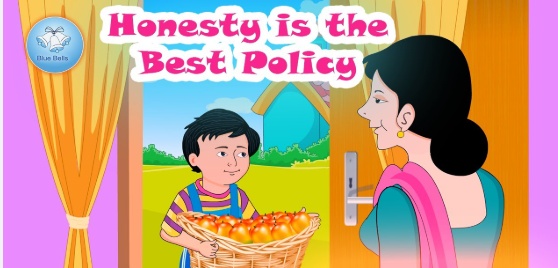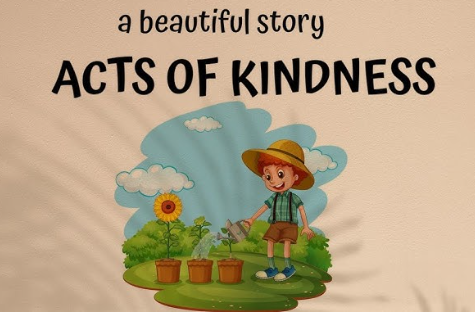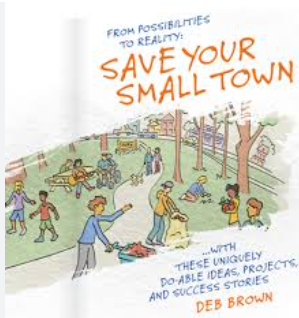Are you looking to earn more Money in 2025 — without working harder?
You're not alone! Whether you're a student, a housewife, or running your own business, lots of people are looking for new ways to earn extra income.
The good news is that there are numerous ways to make Money online. Here are 30 simple and proven ways to make Money in 2025 — pick one and get started!
30 Proven Ways to Make Money in 2025 (Even for Beginners!)
1. Start a Blog and Monetise It and earn Money
Blogging remains one of the best passive income streams. Choose a niche you love, grow your traffic through SEO, and monetize with ads, affiliate marketing, and sponsored posts.
Example: A food blog can earn from recipe ads, kitchen product affiliate links, and paid brand collaborations
2. Become an Affiliate Marketer
Affiliate marketing is booming in 2025. Promote products or services and earn commissions. Utilize platforms such as Amazon Associates, ShareASale, and Impact.
Example: A fitness YouTube channel can earn Money by promoting workout equipment, protein supplements, and fitness apps through affiliate links.
3. Launch a YouTube Channel
Video content is king. Start a YouTube channel doing what you love — whether it's cooking, fashion, fitness, or storytelling. Grow your audience and monetize through ads, brand sponsorships, and memberships.
Example: A cooking channel can earn by sharing easy recipes, running ads, and collaborating with kitchenware brands
4. Sell Digital Products
Create e-books, printables, templates, or courses and sell them on platforms like Gumroad, Payhip, and Shopify — no inventory needed!
Example: A fitness coach can sell downloadable workout plans and meal prep guides to health-conscious customers.
5. Offer Freelance Services
Platforms like Fiverr, Upwork, and Freelancer connect you with clients who need services such as writing, graphic design, SEO, and virtual assistance.
For example, a freelance writer can make Money by writing blog posts and website content for different businesses.
6. Create an Online Course
Use your skills and knowledge to teach others. Websites like Teachable, Udemy, and Kajabi make it easy to build and sell courses to people worldwide.
Example: A fitness coach could design a course on home workouts and offer it to fitness fans everywhere.
7. Dropshipping
Start an online store without keeping stock. Utilize Shopify with Oberlo or Spocket to sell popular products sourced from suppliers.
Example: Sell cool phone accessories without handling inventory in Shopify.
8. Start a Print on Demand Business
Design and sell custom t-shirts, mugs, or bags online. Services like Printful print and ship for you.
Example: Create fun designs for mugs and sell them in your store.
9. Sell Stock Photos
Upload your best shots to stock photo sites like Shutterstock or Adobe Stock — and earn Money each time someone downloads your images.
Example: A food photographer can upload high-quality images of dishes and earn Money as restaurants and bloggers license them for their websites.
10. Become a Virtual Assistant
Businesses are hiring virtual assistants (VAs) to manage email, scheduling, social media, and other tasks. Great for flexible work.
Example: A VA can manage a small business's email inbox and social media accounts, all from the comfort of their own home.
11. Self-Publish Books on Amazon Kindle
Amazon KDP lets you publish e-books and paperbacks. Tap into millions of readers and earn royalties.
Example: A personal finance expert can publish a budgeting e-book on Amazon and earn passive income.
12. Podcasting
Podcasting continues to grow. Monetize through sponsorships, ads, and listener donations.
Example: A personal development podcast can earn through sponsored segments and Patreon supporters.
13. Flip Items Online
Buy low and sell high on eBay, Facebook Marketplace, or Etsy. Great for those with an eye for value.
Example: A vintage collector can flip antique jewellery on Etsy for a profit.
14. Rent Out Property or Space
Earn passive income by renting out property on Airbnb or leasing storage/parking space locally.
Example: A homeowner can rent out a spare bedroom on Airbnb for extra monthly income.
15. Invest in Stocks or ETFs
Build long-term wealth through the stock market—Utilise platforms such as Zerodha, Upstox, or Groww in India.
Example: Put your Money into index funds and let it grow while you focus on other things.
16. Peer-to-Peer Lending
Lend Money to people through platforms like LenDenClub or Faircent and earn interest in return. It's a simple way to grow your Money while helping others...
Example: An investor can lend ₹10,000 to multiple borrowers and earn 10-12% annual returns.
17. Become an Influencer
Micro and nano influencers can earn Money by promoting brands on Instagram, YouTube, TikTok, and other social media platforms.
Example: A beauty influencer can earn through makeup tutorials and sponsored posts on Instagram.
18. Offer Social Media Management
Businesses need help managing Instagram, Facebook, LinkedIn, and more.
Offer social media management services for a steady income.
Example: A freelancer can manage a local café's Instagram account for a monthly fee.
19. Web Design & Development
There's a massive demand for websites in 2025.
Offer web design and development services via Fiverr or your portfolio.
Example: A freelance designer can build e-commerce websites for local businesses.
20. App Development
App developers are in high demand as app usage continues to grow.
Build apps for businesses or create your own to monetize.
Example: A developer can build a fitness tracking app and monetize via in-app purchases.
21. Domain Flipping
Buy attractive domain names and sell them for a profit on platforms like GoDaddy Auctions.
Example: A marketer can purchase trending keyword domains and resell them for a premium.
22. Write and Sell Newsletters
Share your knowledge and get paid by offering premium newsletters on platforms like Substack.
Example: A fitness coach can send a weekly newsletter with exclusive workout tips and meal plans to subscribers.
23. Voiceover Work
Offer voiceover services for ads, audiobooks, animations, and more.
Start on platforms like Voices.com or Fiverr.
Example: A voice actor can record audiobook narration for self-published authors.
24. Test Websites & Apps
Get paid to test websites and apps on platforms like UserTesting or TryMyUI. Just share your experience and feedback to help improve them.
Example: You could test a new travel app and earn Money by giving your honest opinion on how it works.
25. Participate in Online Surveys
Make a little extra Money by answering surveys on sites like Swagbucks or Toluna. It won't replace a full-time job, but it's a nice way to earn some spare cash.
Example: A student can complete quick surveys and get gift cards or PayPal cash in return.
26. Remote Customer Service
Work as a remote customer service agent for companies.
Check platforms like Remote.co, or We Work Remotely for openings.
Example: A remote agent can handle customer chat support for an e-commerce brand.
27. AI & Automation Consulting
Businesses need guidance in using AI tools like ChatGPT, MidJourney, and Zapier effectively. Offer consulting or build automation for clients.
Example: A consultant can set up automated email workflows using AI tools for small businesses.
28. Offer personalised gifts online
Sell custom gifts like mugs, photo frames, or keychains on your website or marketplaces.
Example: A custom photo mug designed for birthdays and special occasions.
29. Sell Handmade Crafts on Etsy
Turn your creativity into income by selling handmade items like jewellery, candles, or home decor on Etsy.
Example: Eco-friendly hand-poured scented candles in decorative jars.
30. Personal Coaching or Consulting
Share your expertise by offering coaching in fitness, mindset, career, or business. Build relationships and attract clients through Instagram, LinkedIn, and your website.
Example: A career coach can guide individuals through personalised 1-on-1 coaching and engaging online workshops.
Conclusion:
In 2025, there are so many ways to make Money — and many are more straightforward than you might think. Just start with something you love, take small steps daily, and watch your efforts grow.
Work smart, not hard. Begin your money-making journey today and see where it takes you!
FAQs
Can I make Money online without having experience?
A: Yes! Many of the methods listed (like affiliate marketing, blogging, freelancing, and taking surveys) require no prior experience.
Q2: How long does it take to start earning Money?
A: It depends on the method. Some (like online surveys or freelancing gigs) can bring quick income. Others (like blogging or YouTube) take time to build an audience but can become long-term passive income streams.
Q3: Which option is best for beginners with no investment?
A: Freelancing, affiliate marketing, virtual assistant work, and online surveys require little to no upfront investment. You mostly need your skills and time.
Q4:Do I need a website to start making Money online?
A: Not always. You can begin with social media (YouTube, Instagram, TikTok), freelancing platforms, or marketplaces like Etsy. But having a website can help if you want to build a long-term brand.
Q5: What skills do I need to succeed in these side hustles?
A: Basic digital skills (writing, editing, graphic design, video editing, social media management) are helpful. Many skills can be learned for free through YouTube or online courses.

.png)









.png)
